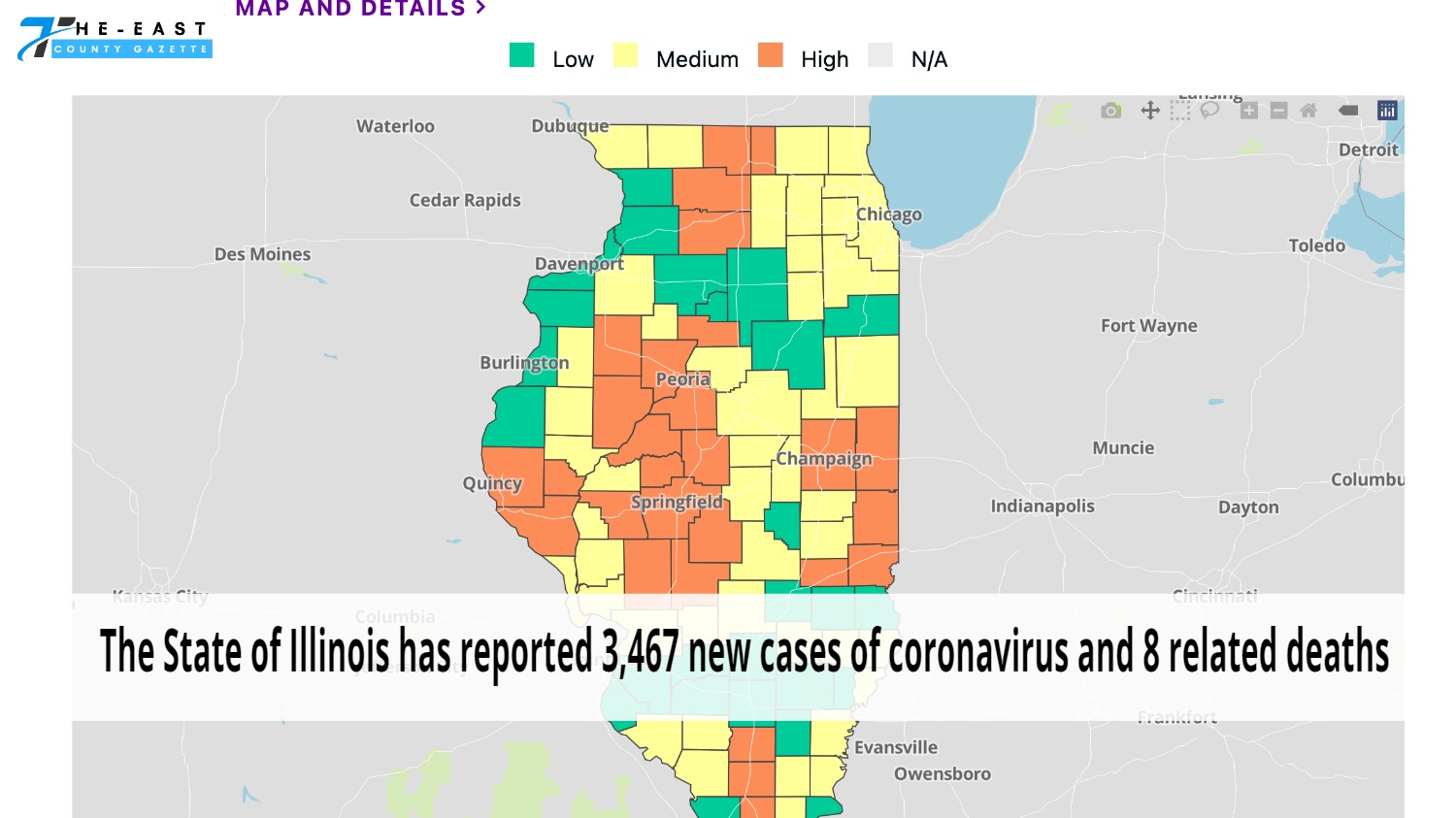On Friday, Illinois announced 3,467 new instances of COVID, including eight deaths.
Death tolls on weekends and at the start of the week “may be low,” according to the Illinois Department of Public Health, but “such deaths will be caught in following days.”
Cook County, along with Lake, DuPage, and McHenry counties, now has a “medium” risk level for COVID-19 transmission, as reported by the U.S. Centers for Disease Control and Prevention.
Since the beginning of the pandemic, there have been at least 3,906,801 cases of COVID in the state, with at least 35,550 deaths.
Approximately 1,582 COVID-19 individuals were hospitalized in Illinois as of Thursday night.
Of those, 188 were admitted to the intensive care unit, with 69 of them having COVID-19 and requiring mechanical ventilation. The daily incidence rate is 23.8 per 100,000 people.
One-third of Chicagoans over the age of 65 have not had booster shots. The top physician in Chicago expresses grave concern that Chicagoans over the age of 65 are not being safeguarded from the spread of the COVID-19 virus.

Only roughly a third of Chicagoans in that age range (34%) have completed their vaccination schedule. However, this group also includes some of the most vulnerable members of society.
Edward Walker, 67, used a routine checkup to get the flu shot, pneumonia shot, and the COVID bivalent booster.
He said, “I’m here taking my shots because I want to live, and I want to live to be 87 instead of 67.”
In spite of the fact that the bivalent booster for the over-65 population has been readily available for quite some time, many seniors still have not gotten it.
Although an increase in COVID hospitalizations has been documented, barely one-third of Chicago residents over the age of 65 have received the shot, per the Chicago Department of Public Health.
According to Dr. Rene Roberts of Oak Street Health, “they are still considered one of the greatest risk categories for acquiring COVID.”
Elderly people are vulnerable due to a combination of factors, including a weakened immune system and preexisting illnesses, including diabetes and high blood pressure.
Dr. Roberts says it has been challenging to get some patients to take advantage of the vaccine, even those who were among the first in line when it was initially introduced.
Dr. Roberts remarked that many patients ask him, “Why do I still need to receive the COVID booster if I did quite well and made it through the pandemic without getting COVID?”
It has been reported by Dr. Roberts that some patients are ready to get the flu and pneumonia vaccines but are hesitant to get the COVID booster.

She argues that having many brief chats with each patient is key to persuading them to obtain all of their vaccinations.
She emphasized the need to establish trust with patients and the local communities surrounding clinics.
Patients at Oak Street tend to be both elderly and from underrepresented groups. Both Black and Latino Chicagoans have a booster rate lower than 20%.
Among the various factors that led to Edward Walker getting the booster, Dr. Roberts believes that the upcoming holiday season would encourage more of their patients to do so.
“If I get mine, I know that I and my family are secure,” Walker remarked.
There has been a small uptick in COVID cases and hospitalizations after Thanksgiving.
The overall threat level to the region is still medium, but new data from monitoring wastewater suggests an even more severe danger.
Total vaccination coverage in Illinois stands at 8,407,830, or roughly 65.99%. Sixteen thousand and ten is the average daily number of visitors during the past week.
Source: ABC7Chicago

